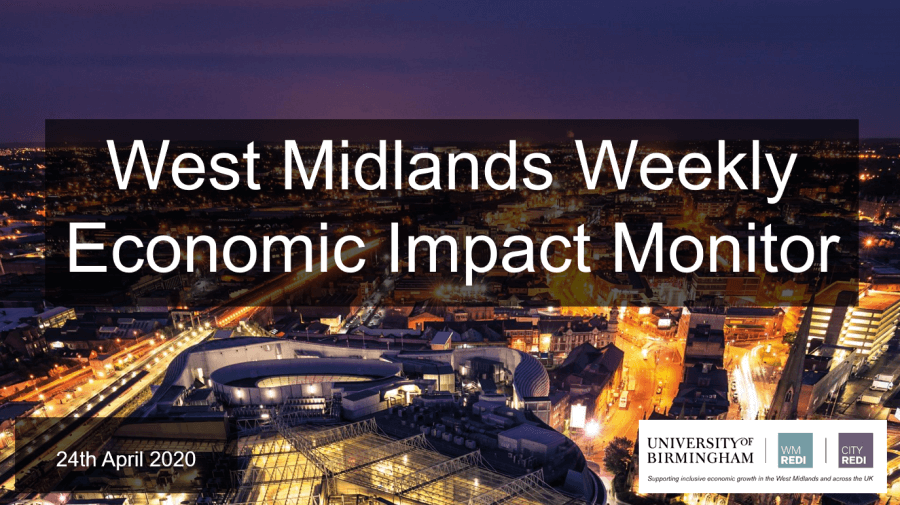 WM REDI has been tasked with providing an up to date monitor of the current COVID-19 economic impacts to help regional partners to shape responses and interventions to ensure the region continues to thrive.
WM REDI has been tasked with providing an up to date monitor of the current COVID-19 economic impacts to help regional partners to shape responses and interventions to ensure the region continues to thrive.
The weekly monitor brings together data and intelligence from the WM REDI partnership into one single source which can be shared and utilised in planning and responding to the challenge of the virus. This is a rapid review of the issues and not intended to be a comprehensive assessment but a practical report which places emphasis on emerging issues and the best data and intelligence we have to date.
The monitor is feeding into the regional recovery plan that can help the regional economy bounce back and quickly move forward once lockdown restrictions start to be lifted.
The work is being endorsed by political and business leaders a task force of experts are being set up through WM REDI Partners to better understand the impact of the lockdown and what measures will be needed to get the economy moving again.
The need for a recovery plan, which was discussed by the West Midlands COVID-19 Economic Impact Group (EIG) at a virtual meeting (Thursday, April 23), comes as the scale of the impact of the lockdown on the region was revealed.
Research by the Centre for Progressive Policy (CPP) highlights that impacts will vary and some local authorities will be harder hit and KPMG predicts that the West Midlands will be hard hit.
That research is included in a WM REDI report presented to the EIG this week (23/04/20), which is made up of key public and private sector organisations including the West Midlands Combined Authority (WMCA).
The report says:
- Surrounding shires face being hit harder by the lockdown than the metropolitan area – Stratford’s economy could shrink by nearly half (46%) compared to 35% in Birmingham; and
- 65% of businesses say their cash reserves are dwindling fast and will be gone within six months, raising fears for their longer-term survival.
A number of factors are making the West Midlands the most exposed region for economic contraction:
- Previous record levels of growth in the West Midlands have been driven by construction, which has now stalled and manufacturing, especially automotive, has been hit hard due to a reduction in domestic and export demand.
- The closure of the hospitality, retail, tourism and cultural sectors has also taken a heavy toll, especially in rural and peripheral areas dependent on this as a large part of their economy.
Download and view a copy of the West Midlands Weekly Economic Monitor.
City-REDI / WM REDI have developed a resource page with all of our analysis of the impact of Coronavirus (COVID-19) on the West Midlands and the UK. It includes previous editions of the West Midlands Weekly Economic Monitor, blogs and research on the economic and social impact of COVID-19. You can view that here.
This blog was written by Rebecca Riley, Business Development Director, City-REDI.
Disclaimer:
The views expressed in this analysis post are those of the authors and not necessarily those of City-REDI or the University of Birmingham.
To sign up to our blog mailing list, please click here.
